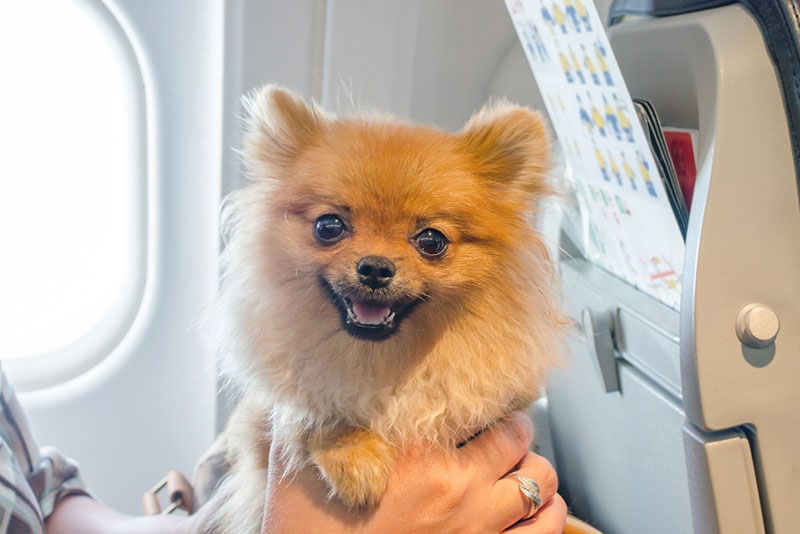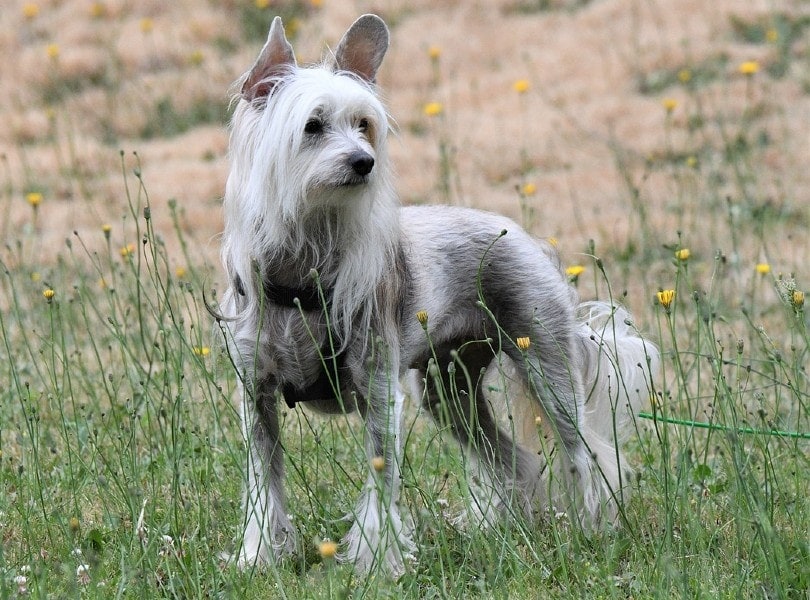Can Dogs Eat Peanut Shells? Vet-Reviewed Facts to Know!

Updated on
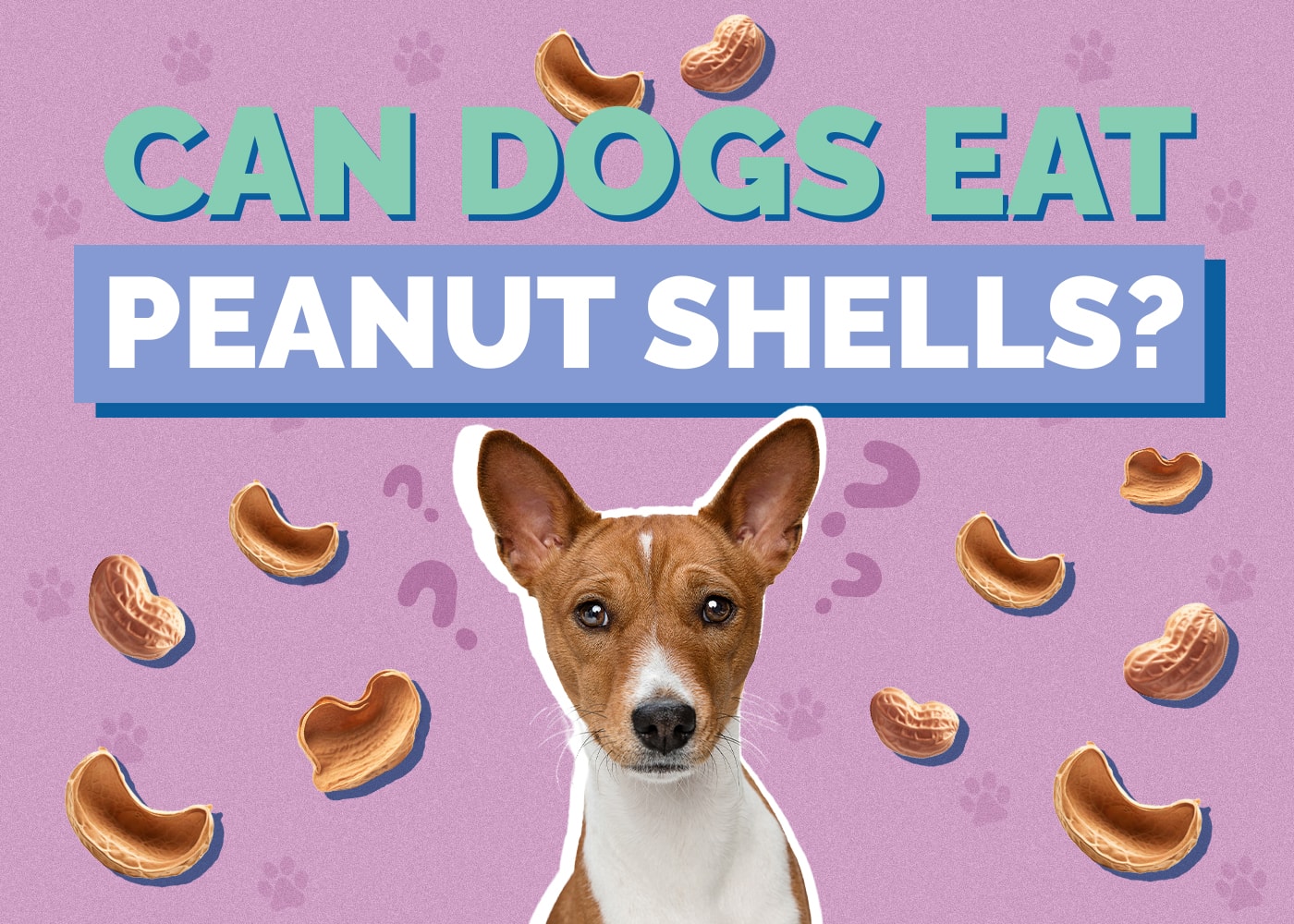
Peanuts and peanut shells aren’t toxic to dogs, but they can still be dangerous for your dog to eat, and shelled peanuts shouldn’t be used as snacks. However, sometimes your furry friend might be a bit quicker than you and could snag a shelled peanut off the counter before you can react. If your dog gets a peanut shell, don’t panic. There are a few things to watch out for, but there is usually no need to rush them to the vet. A quick call to your vet, however, is always a good idea.
Choking Hazard
If your dog is crunching on a peanut shell, the number one immediate risk is choking. Peanut shells break into sharp pieces that could easily get lodged in your dog’s throat, and they are especially dangerous for smaller dogs. The best option is to remove the peanut shell from their mouth before they can eat it but if that isn’t possible, monitor them for signs of choking until they’ve swallowed entirely.
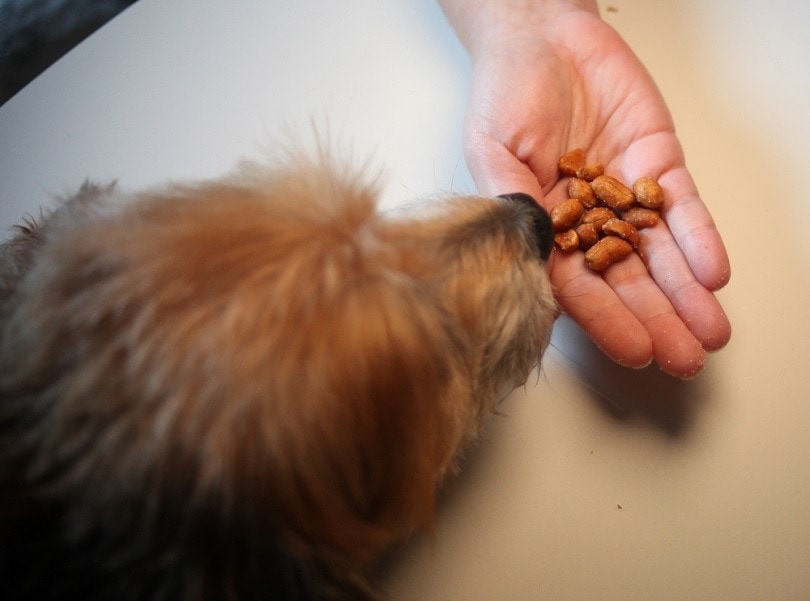
Digestive Difficulties
If your dog has already swallowed a peanut shell, you need to pay special attention to their intestinal health for the next few days. Peanut shells are very high in fiber and can be difficult for your dog’s digestive system to handle, and jagged shards threaten to get stuck in their digestive tract. Signs to watch out for are vomiting, diarrhea, and the inability to have a bowel movement. These signs can indicate an obstruction in their intestines, which can be dangerous and require emergency attention.
You should also monitor your dog’s stool for signs of blood. Darker-than-normal stool or stool with an unusual consistency are the primary warning signs. A bloody stool could indicate damage to the digestive tract and warrants a trip to the vet. Don’t be fooled if you don’t see a typically blood-colored red tint since bloody stool isn’t normally red.
If you notice your dog exhibiting any of these signs, it is worth reiterating that you should seek professional advice from your vet. There is no substitute for a vet’s expertise.
What About Peanuts and Peanut Butter?
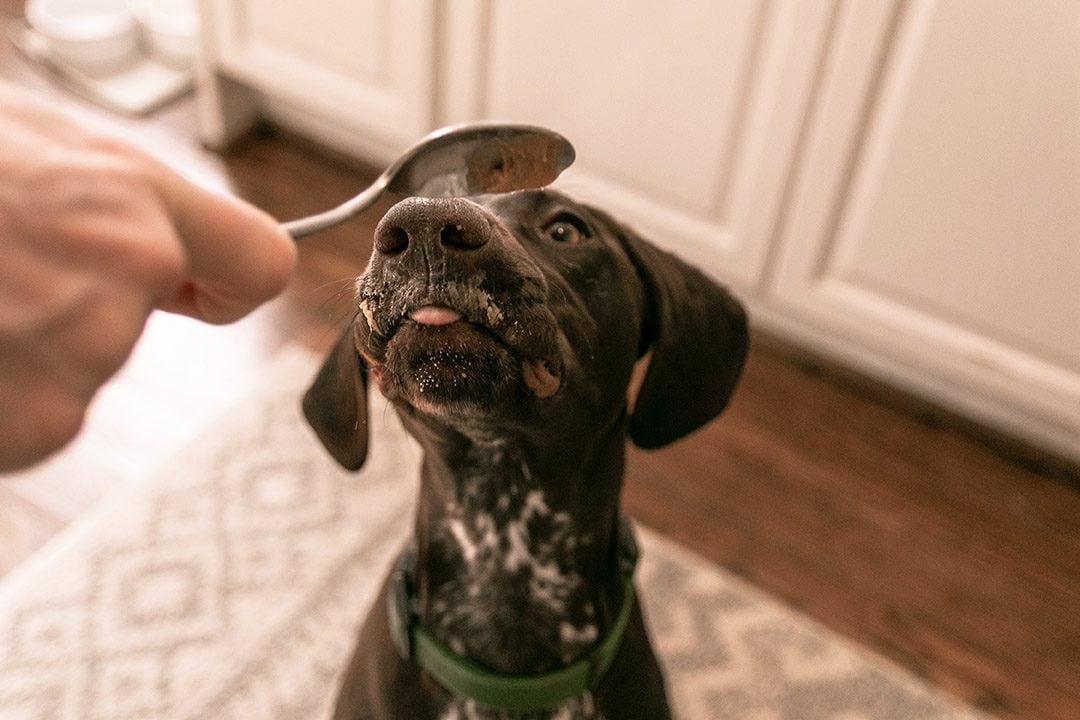
Peanut butter is a common treat for dogs, and usually, it is perfectly safe and healthy for your four-legged friend. Although peanut butter is high in fat, it also is packed with vitamins that give your dog a nutritional boost that they’ll love. Peanut butter should only be given to dogs sparingly since it isn’t the healthiest treat. We recommend using it as a special treat for special occasions.
Some brands of peanut butter contain xylitol, which is toxic for dogs and should be avoided. It is essential that you check the label on your peanut butter before you give it to your dog. Finding peanut butter without xylitol is not difficult and makes a great occasional treat for your buddy.
Even though peanut butter – without xylitol – is safe, it should still be used as a treat infrequently. The high fat content and high sodium levels are not good for your dog’s overall health. High-fat diets can lead to pancreatitis, and high-sodium diets are just as dangerous for your canine companion as they are for yourself.
Peanuts pose the same risks, benefits, and guidelines when used as dog treats. As with most dietary considerations, moderation is key. Giving your dog a few peanuts is fine, but we don’t recommend making a regular habit out of using peanuts as a treat. When offering peanuts to your dog, please make sure they are not seasoned with garlic, chili, or excessive salt. Also, consider that while peanuts are okay to offer on occasion, there are healthier snack options that your dog will love just as much.
Conclusion
In general, you should avoid letting your dog eat peanut shells if you can. We realize that sometimes accidents happen, but your dog will most likely be fine if they eat a peanut shell or two. If you make sure they don’t choke, monitor their digestive health over the following days and call your vet. Odds are nothing will happen, and they’ll continue with their happy, waggy life unaffected.
See also:
- Can Dogs Eat Refried Beans? What You Need to Know!
- Can Dogs Eat Goldfish Crackers? What You Need to Know!
Featured Image Credit: Pezibear, Pixabay



